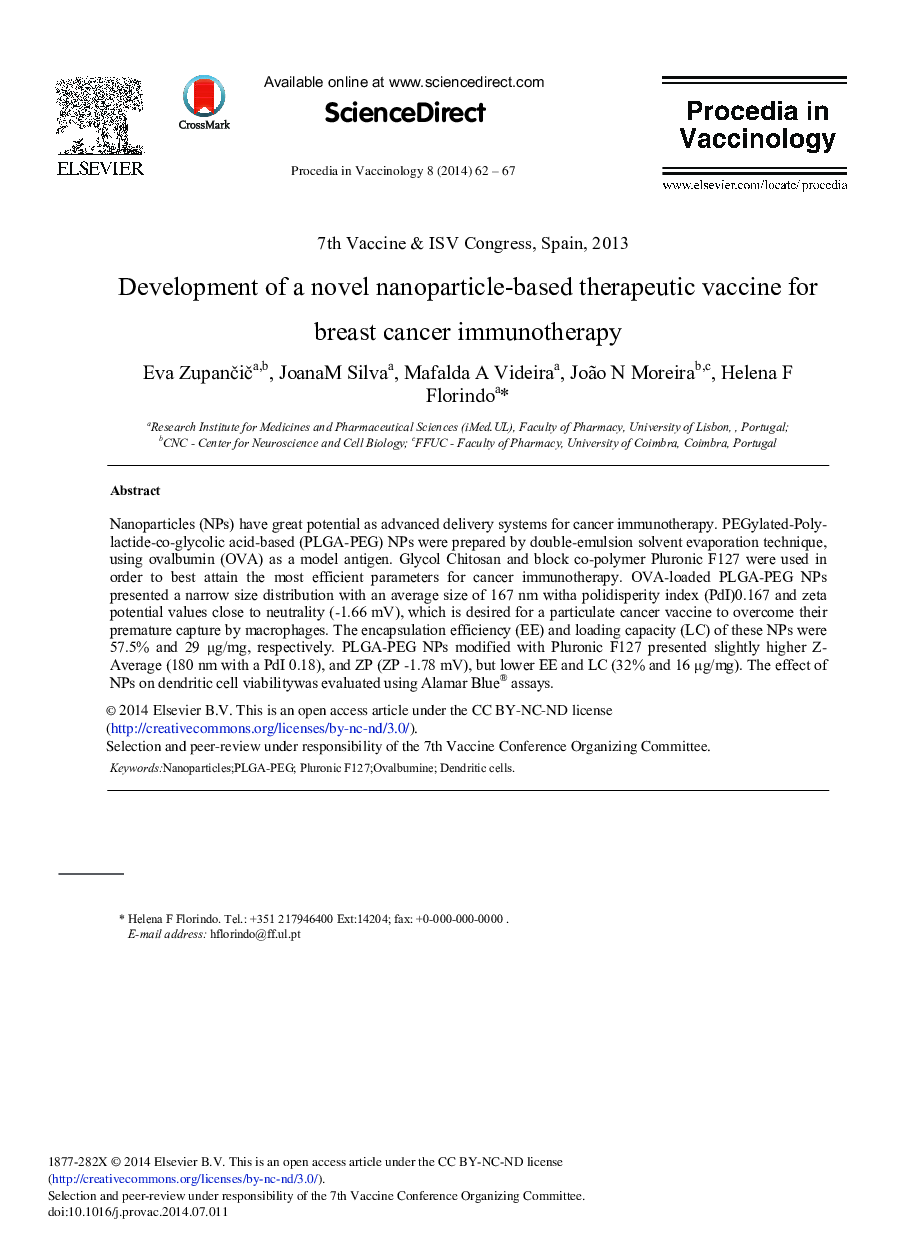| Article ID | Journal | Published Year | Pages | File Type |
|---|---|---|---|---|
| 2473764 | Procedia in Vaccinology | 2014 | 6 Pages |
Nanoparticles (NPs) have great potential as advanced delivery systems for cancer immunotherapy. PEGylated-Poly- lactide-co-glycolic acid-based (PLGA-PEG) NPs were prepared by double-emulsion solvent evaporation technique, using ovalbumin (OVA) as a model antigen. Glycol Chitosan and block co-polymer Pluronic F127 were used in order to best attain the most efficient parameters for cancer immunotherapy. OVA-loaded PLGA-PEG NPs presented a narrow size distribution with an average size of 167 nm witha polidisperity index (PdI)0.167 and zeta potential values close to neutrality (-1.66 mV), which is desired for a particulate cancer vaccine to overcome their premature capture by macrophages. The encapsulation efficiency (EE) and loading capacity (LC) of these NPs were 57.5% and 29 μg/mg, respectively. PLGA-PEG NPs modified with Pluronic F127 presented slightly higher Z- Average (180 nm with a PdI 0.18), and ZP (ZP -1.78 mV), but lower EE and LC (32% and 16 μg/mg). The effect of NPs on dendritic cell viabilitywas evaluated using Alamar Blue® assays.
